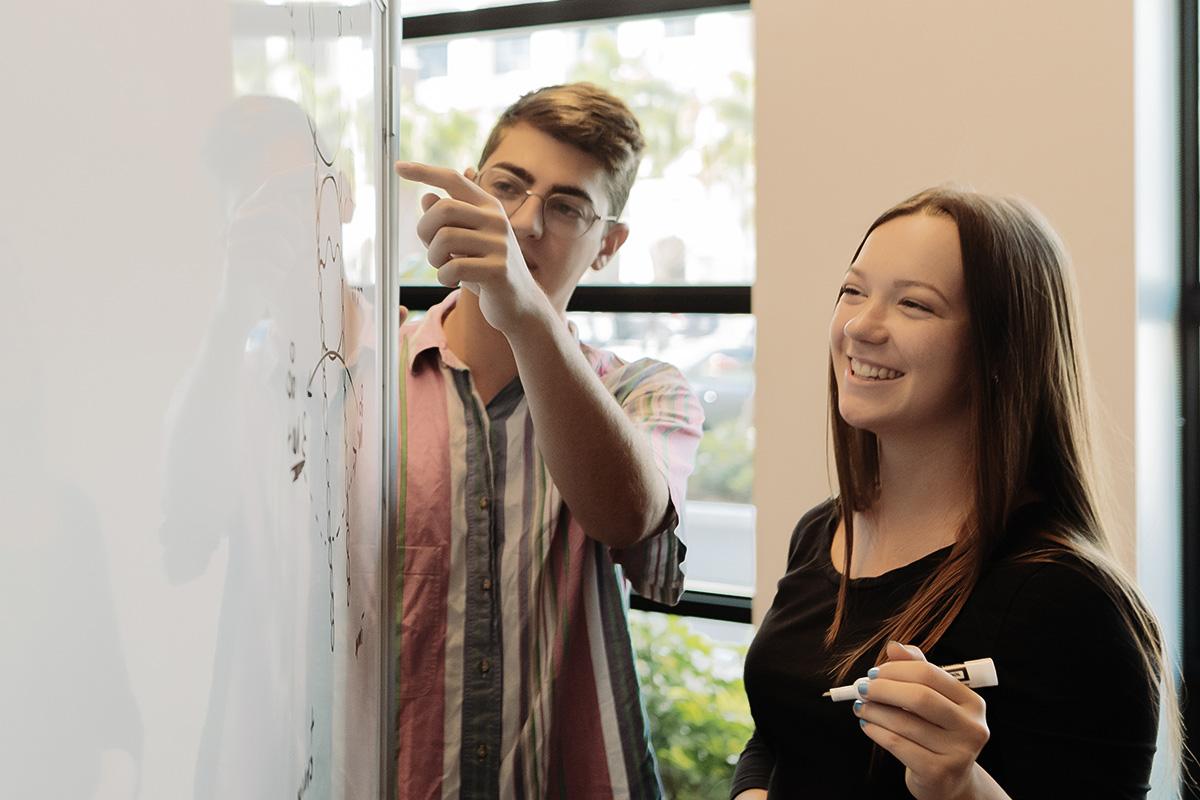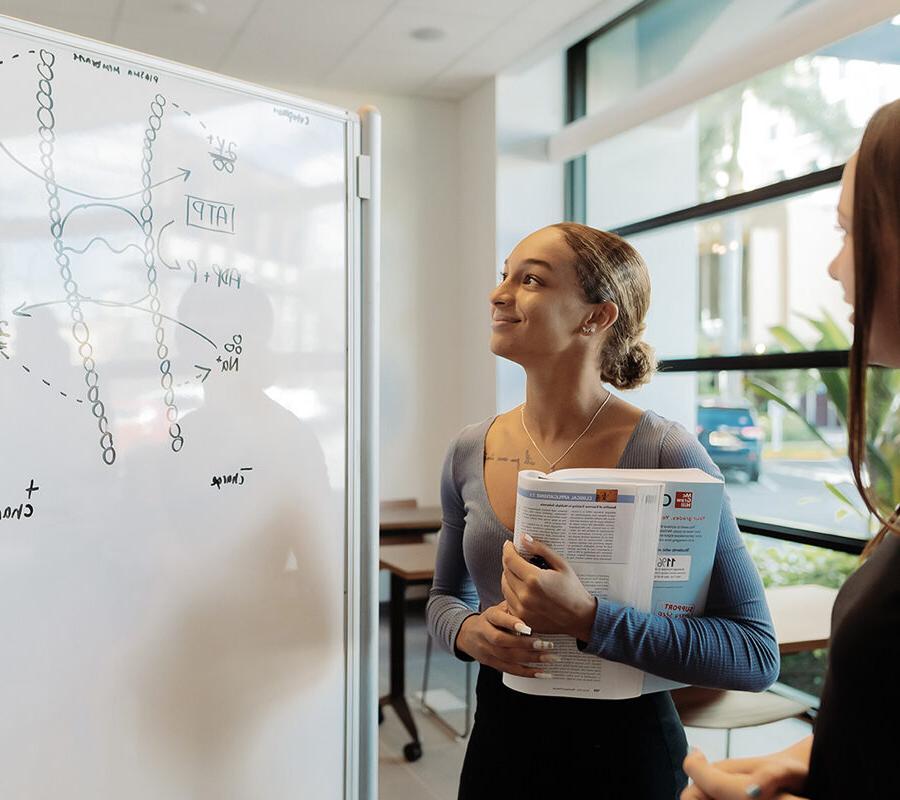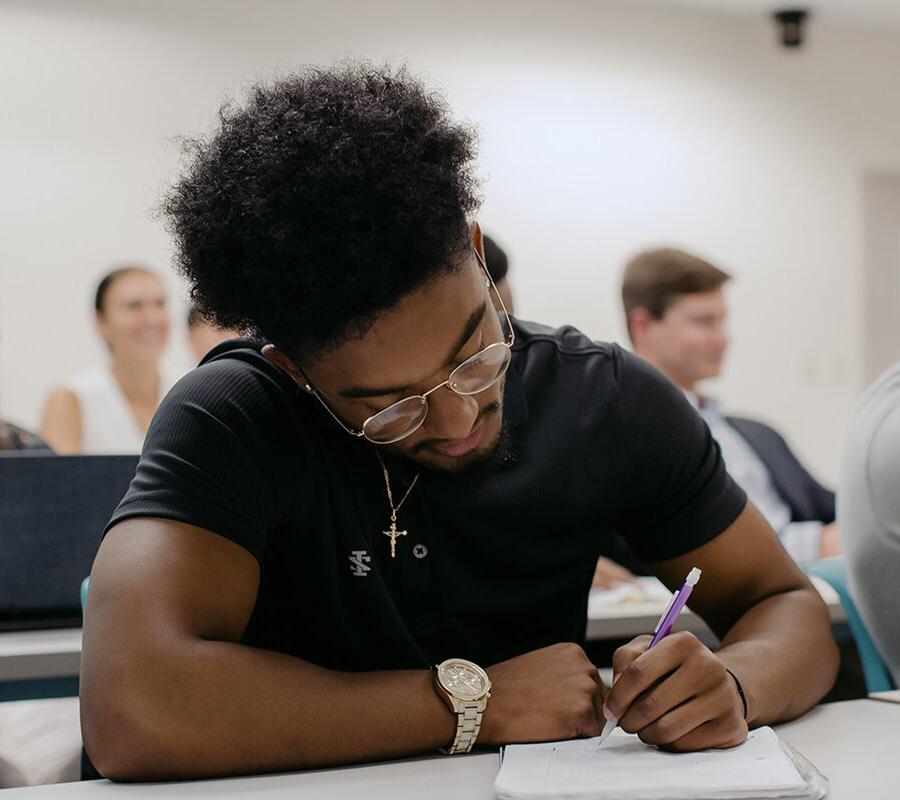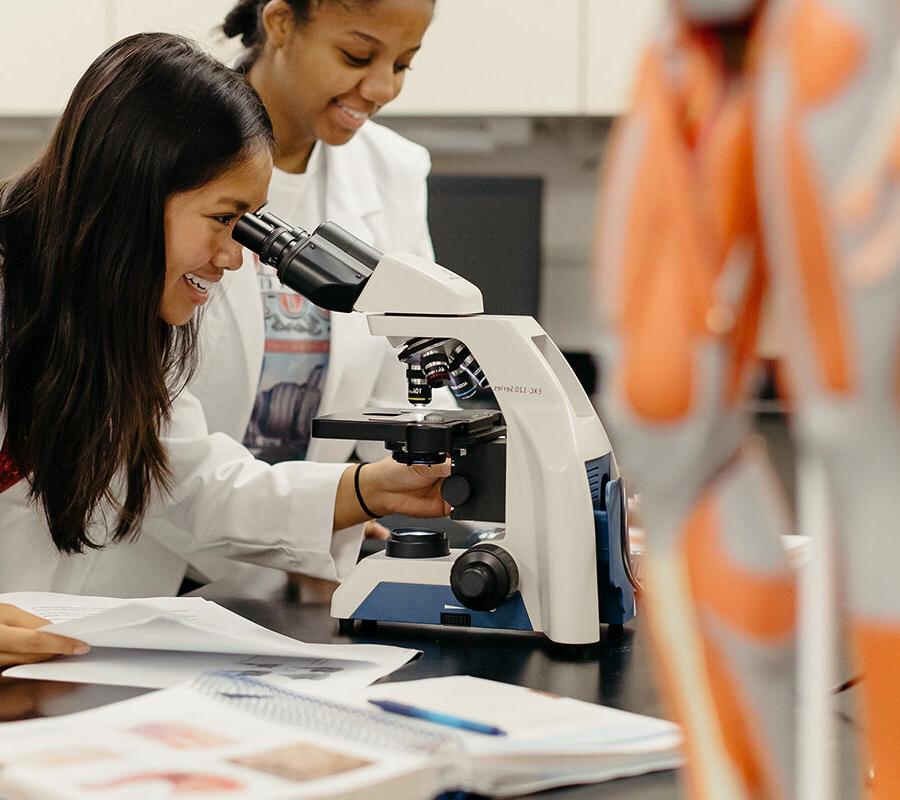About PBA's Physics Minor
A minor in physics provides a foundational understanding of physics and relevant quantitative methods.
The physics minor is a great choice for students with strong mathematical skills and an interest in natural science. A minor in physics is also a good option for students who hope to pursue an advanced degree in science after graduation.
Required Physics Courses – 17 Credit Hours
- Physics with Calculus I
- Physics with Calculus II
- Physics I Laboratory
- Physics II Laboratory
Choose 3 of the following:
- Special Relativity
- Modern Physics
- Introduction to Computational Science
- Thermodynamics and Statistical Mechanics
Required Mathematics Course – 4 Credit Hours
- Calculus I

PBA awards over three million dollars in scholarships every year and 97% of PBA undergraduate students receive financial aid.
Learn more about your classes and requirements in the course catalog.

Explore PBA
From the intrigue of the Intercoastal Waterway to the inspiration of the stunning DeSantis Chapel, to the opportunities in bustling downtown West Palm Beach, to the comfort of a cozy residence hall, you’ll feel at home here. Come experience the vibrant, supportive, inspiring campus of PBA for yourself.



